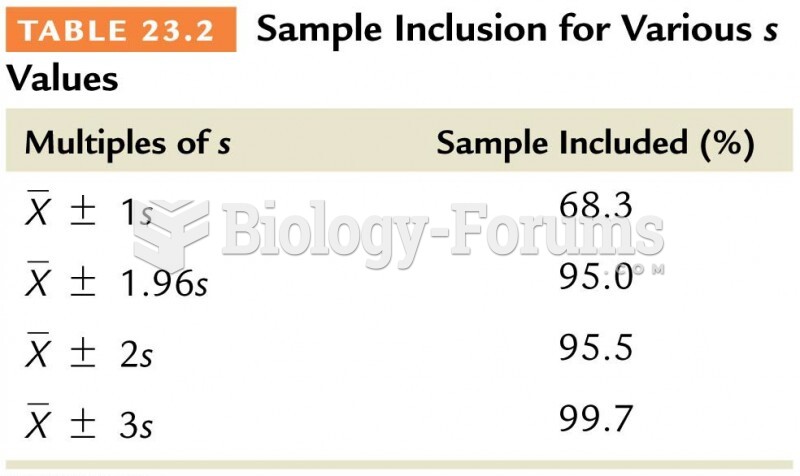|
|
|
Limit intake of red meat and dairy products made with whole milk. Choose skim milk, low-fat or fat-free dairy products. Limit fried food. Use healthy oils when cooking.
Green tea is able to stop the scent of garlic or onion from causing bad breath.
Though methadone is often used to treat dependency on other opioids, the drug itself can be abused. Crushing or snorting methadone can achieve the opiate "rush" desired by addicts. Improper use such as these can lead to a dangerous dependency on methadone. This drug now accounts for nearly one-third of opioid-related deaths.
Approximately 500,000 babies are born each year in the United States to teenage mothers.
Between 1999 and 2012, American adults with high total cholesterol decreased from 18.3% to 12.9%







